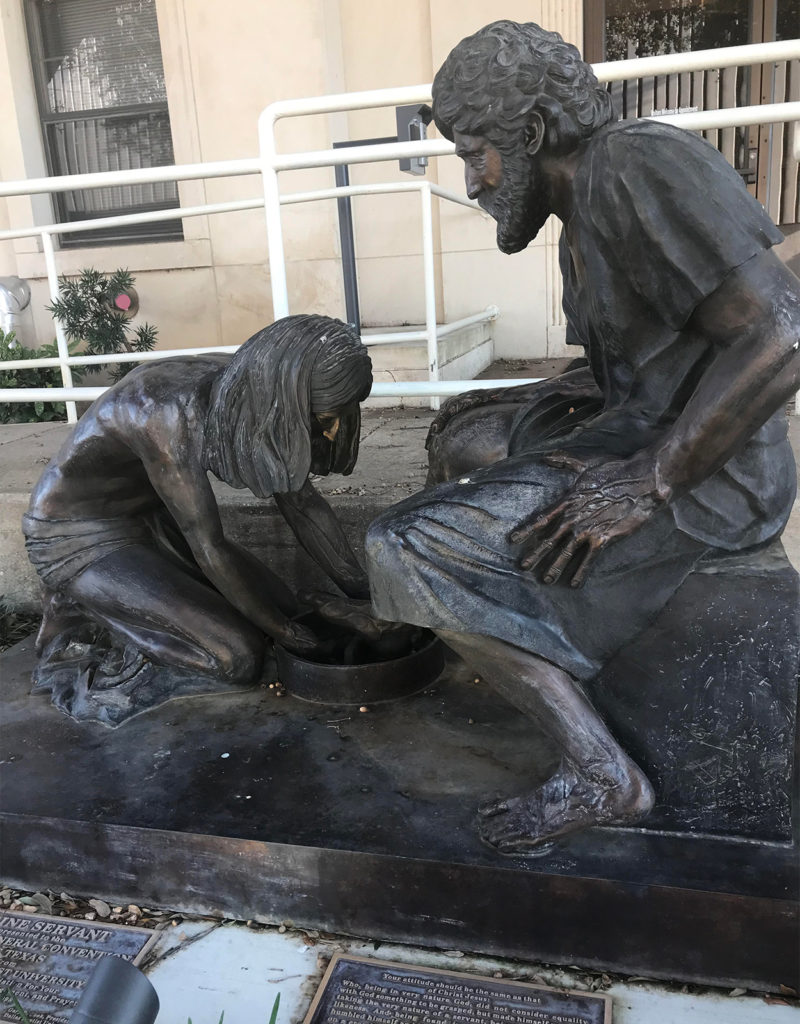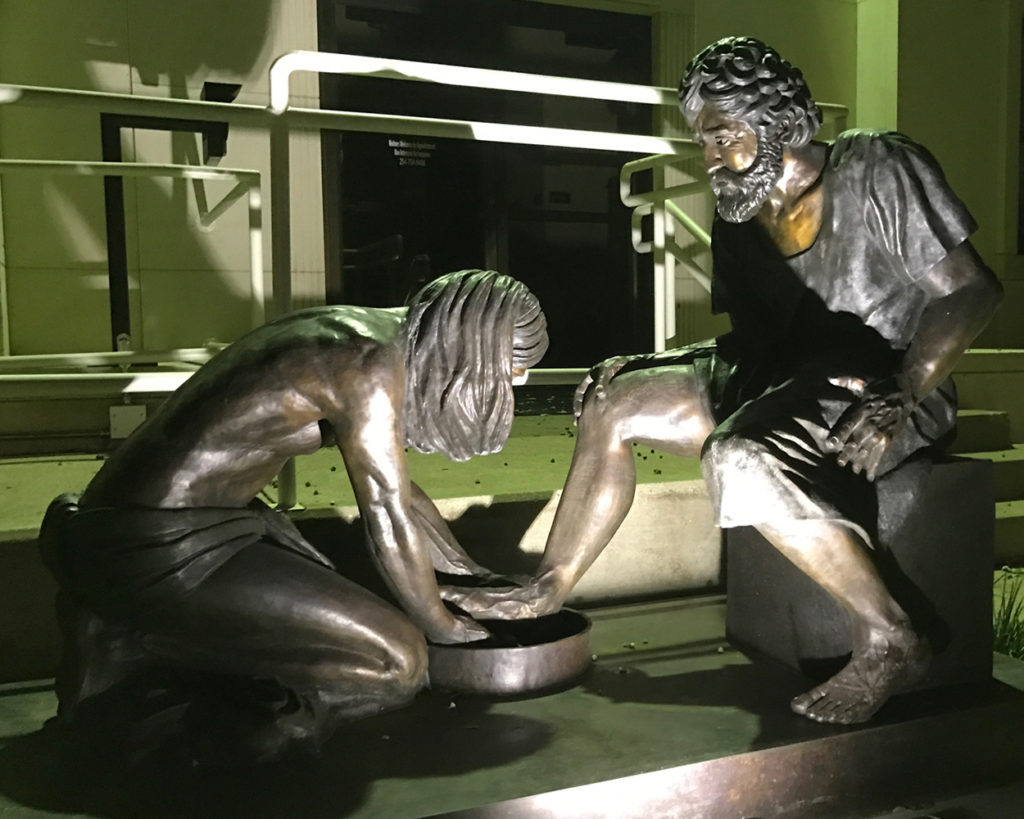Voices: The radical implications of the incarnation in the wake of sexual harassment
The sheep and the goats are being separated each day over the past few months. Every day, new revelations come out about some powerful man abusing or harassing young women and young men. I cringe every time a news alert pops up on my phone.
Months ago, we thought Harvey Weinstein might be the most egregious example of a sexual predator. But, after allegations against many other well-known men in entertainment, the media, and politics, a much more complete vision is becoming undeniable.
What has lived for years as insider, local knowledge is now front-page news. And now these people who have abused and kept others from advancement in the workplace are losing their own careers.
Michael Gerson recently wrote in The Washington Post, “What seemed for generations the prerogative of powerful men has been fully revealed as a pernicious form of dehumanization. … An ethical light switch was flipped. Moral outrage — the appropriate response — now seems obvious.”
‘An ethical flash point’
We are in the midst of an ethical flash point. And what is being revealed about us is not pretty. This flash point is a time to take stock of who we are. What do we truly value?
And, for those of us in churches, we must ask: What needs to be reevaluated in us and our theology?
Words matter. Theology matters. What we do in church shapes our thoughts and creates categories of meaning and value.
This past summer, a colleague of mine at Woodland Baptist Church, Ellen Di Giosia, was called to be the senior pastor of the First Baptist Church of Jefferson City, Tennessee. Because First Baptist called her, they have now been kicked out of the Tennessee Baptist Convention.
We need another look at Scripture, and more than a passing glance that dismisses new or unfamiliar readings. Look at the way God’s Spirit acts through the ministry of women in the Bible.
In his essay “Women in Ministry: Biblical, Theological and Practical Reflections,” Dr. Todd Still makes note of a myriad of women in the New Testament who served the church in a variety of ways, many of which would be similar to modern-day pastors: Lydia, Priscilla, Junia, Tryphaena, Tryphosa, Euodia, Syntyche, and more.
Anna the prophet is one of the first to recognize the significance of Jesus’ birth. When she meets the Christ child at the Temple, she began to praise God and to speak about Jesus to everyone who was “looking forward to the redemption of Jerusalem” (Luke 2:38). It must have been a wonderful sermon!
For the most part, we have chosen not to see within Scripture the seeds of liberation for women within the life of the church. We have been convinced that yesterday’s patriarchy is God-ordained. And we are paying the price.
‘A direct path’
The sheep and the goats are being separated. It is no longer convenient to ignore the gifts of women in the church for preaching and teaching.
There’s a direct path from the theology of the Tennessee Baptists to the empowering of Harvey Weinstein. There’s a direct path from the Southern Baptists firing all women who teach men in its seminaries (e.g., firing people like Molly Marshall) and sweeping the vulgar acts of people like Roy Moore under the rug.
This is a theology that can’t come to terms with the sacred equality of women and men. Valuing maleness over the Spirit’s actions through women denies the radical nature of the incarnation.
This is a theology that refuses to see the Spirit as capable of acting through female flesh. Putting a cap on the Spirit’s capabilities is the definition of blasphemy.
The question is: Will we learn and be changed from this encounter? It is not too late.
After all, we have thought it was all lost before.
On that dreadful day long ago, a disciple went to Jesus’ tomb early on a Sunday morning. There Mary met the gardener. And, realizing who he was, she went back to the apostles and preached the first Christian sermon, saying, “I have seen the Lord.”
Garrett Vickrey is pastor of Woodland Baptist Church in San Antonio.

